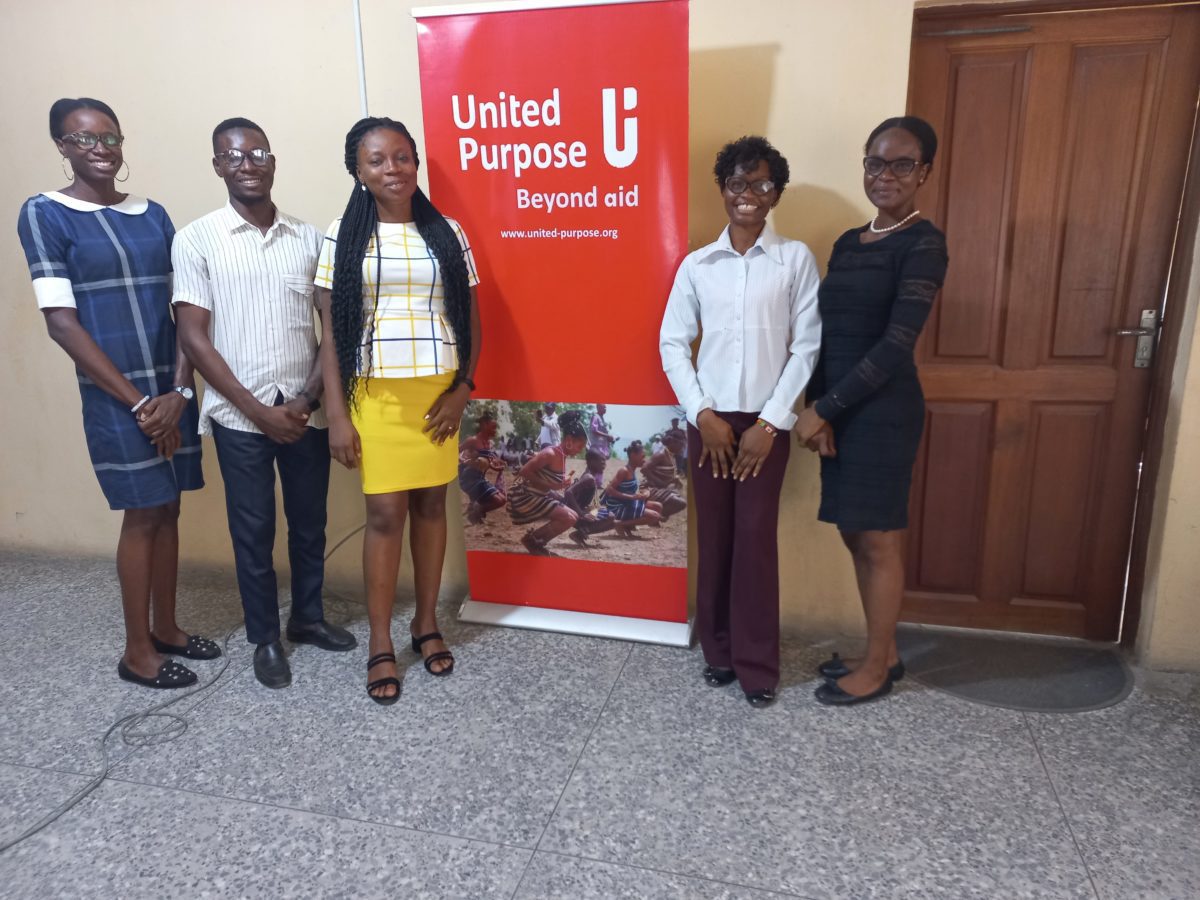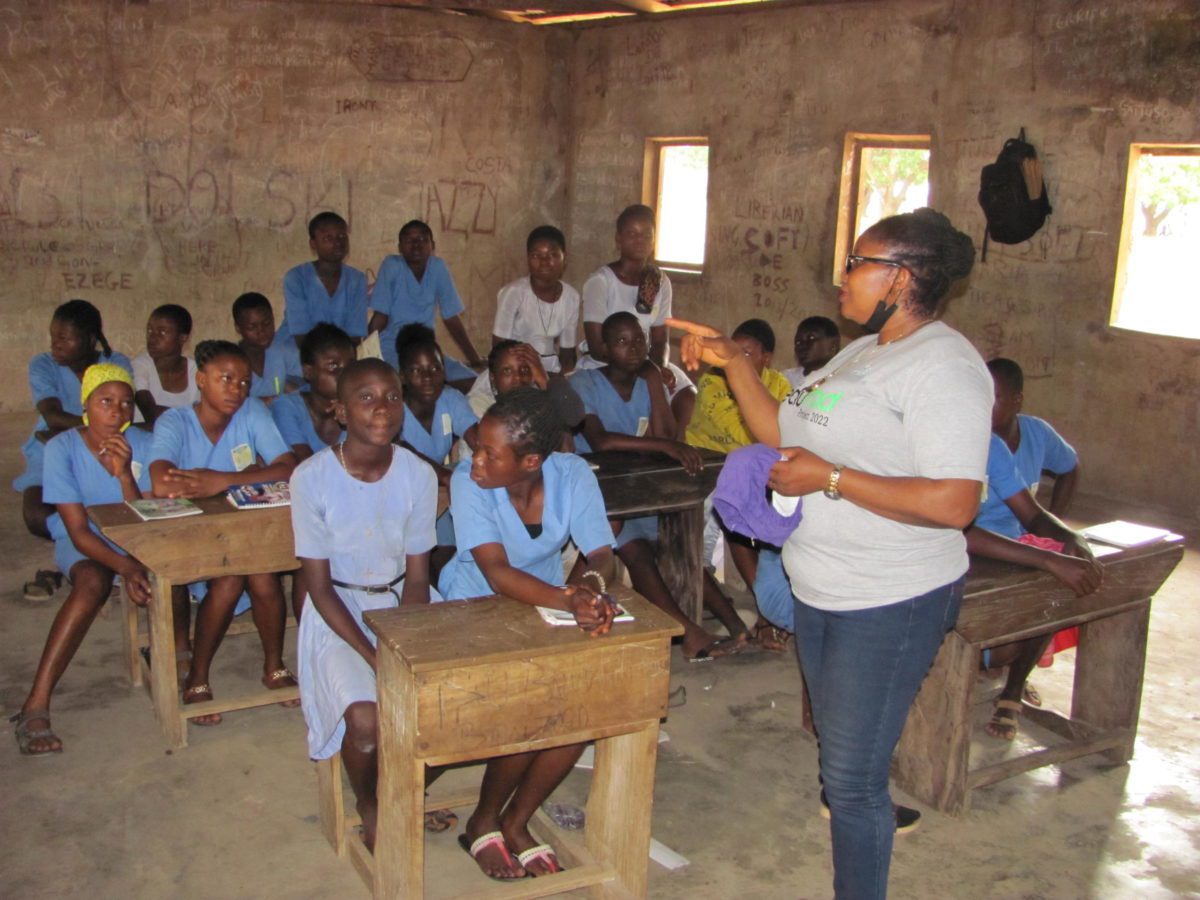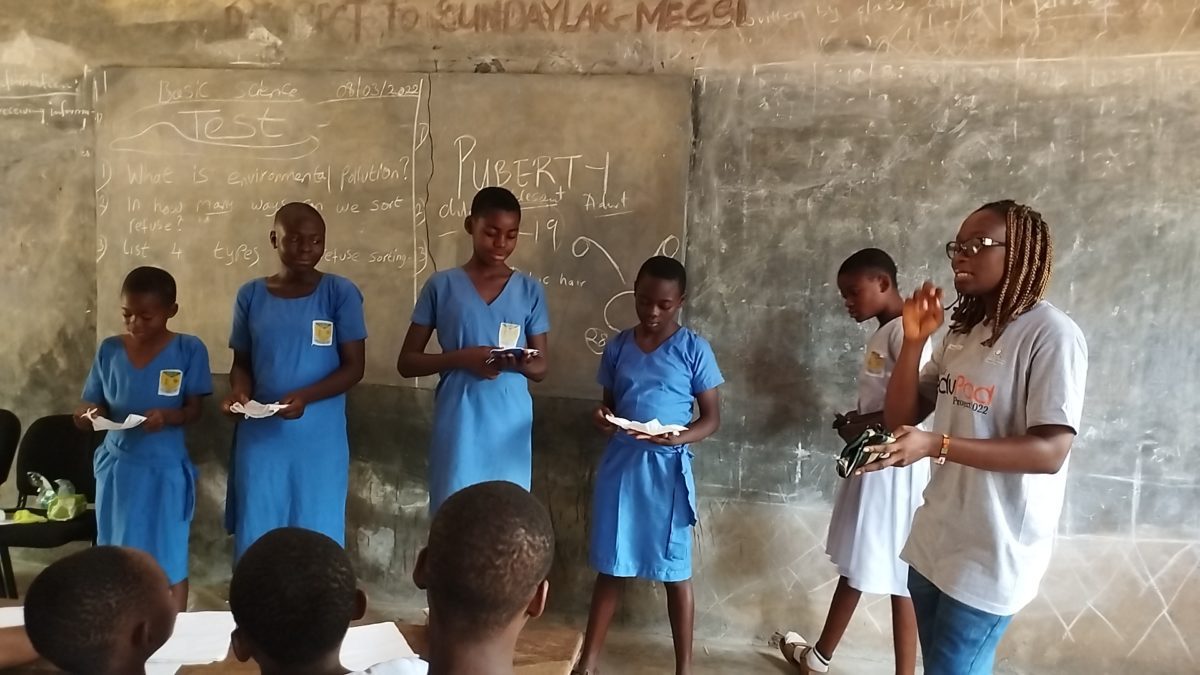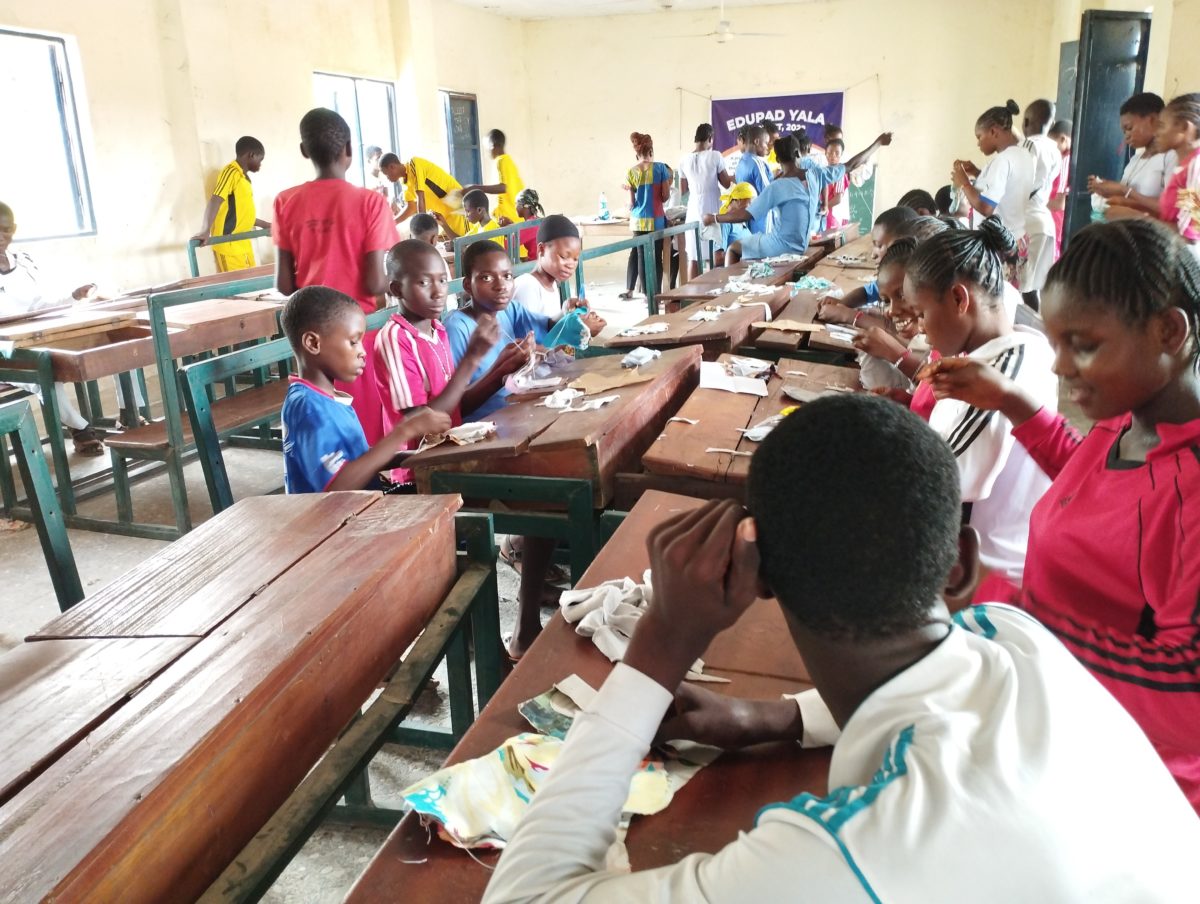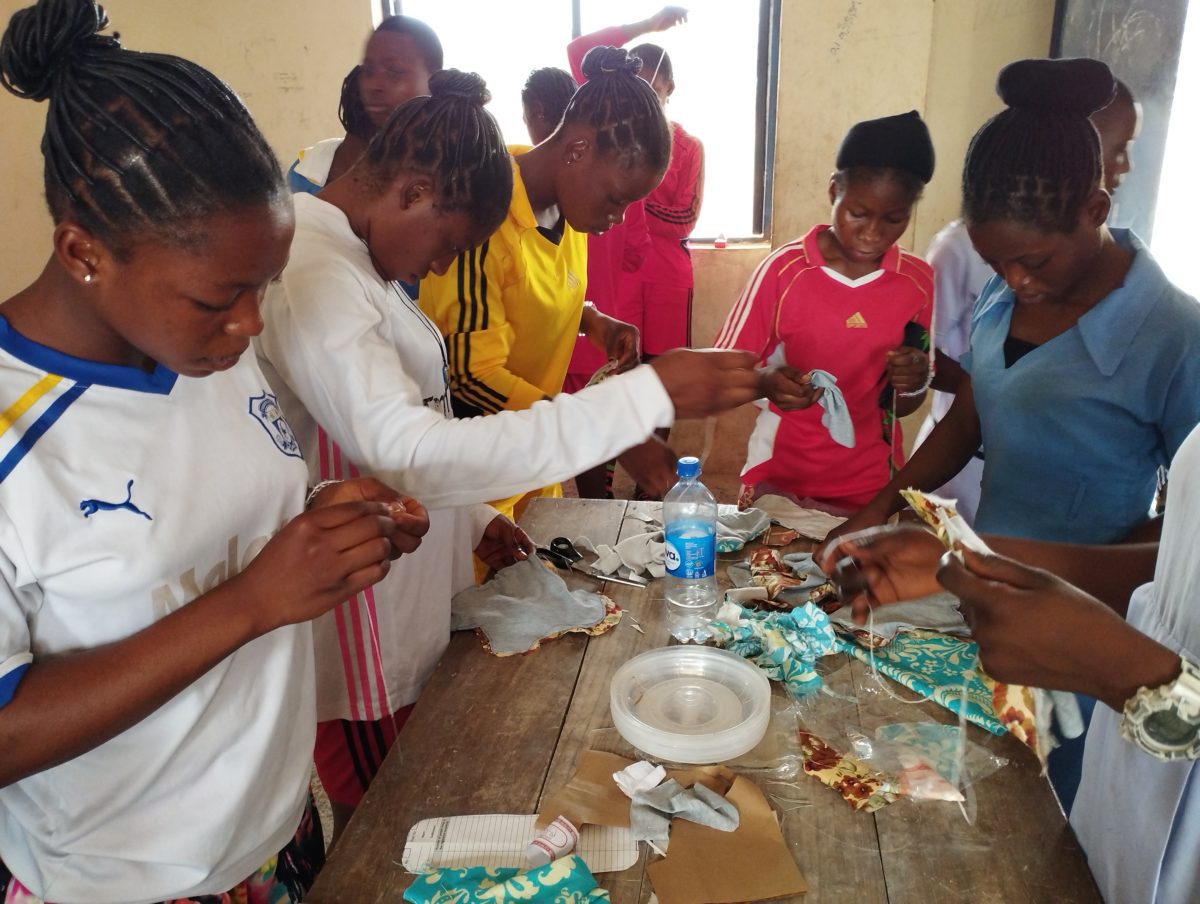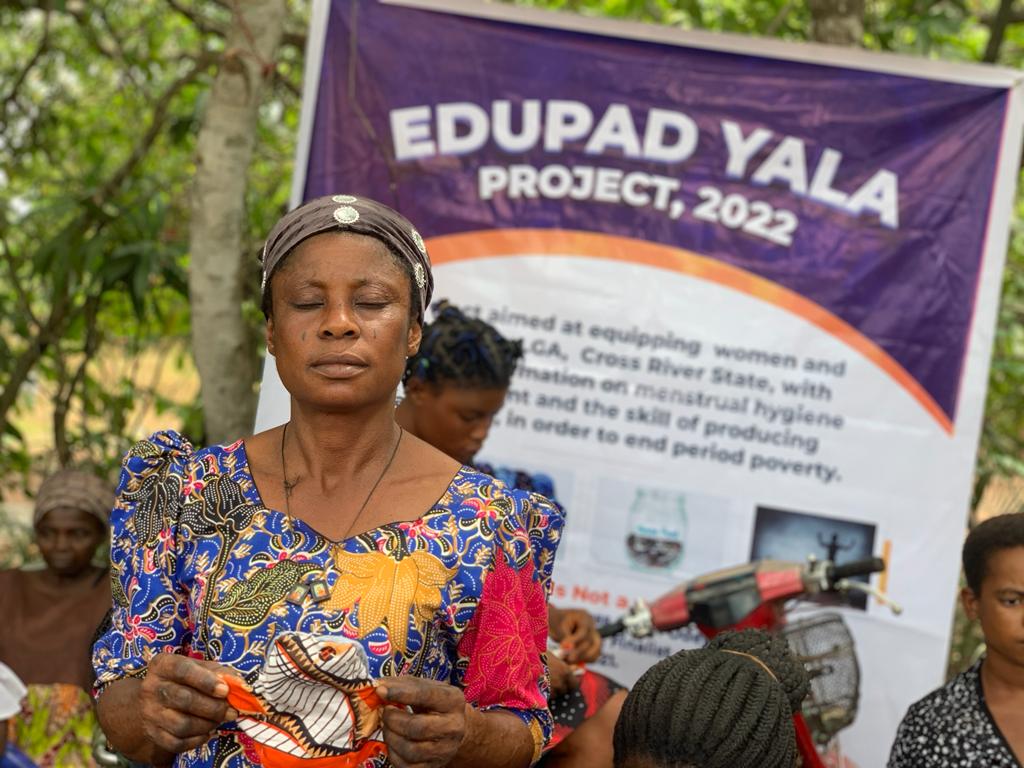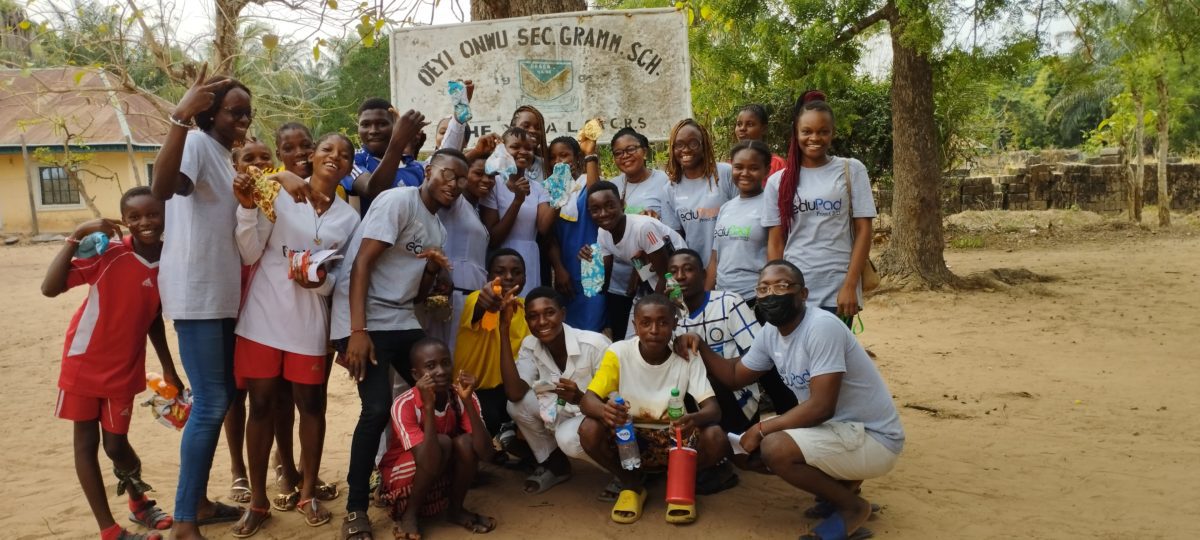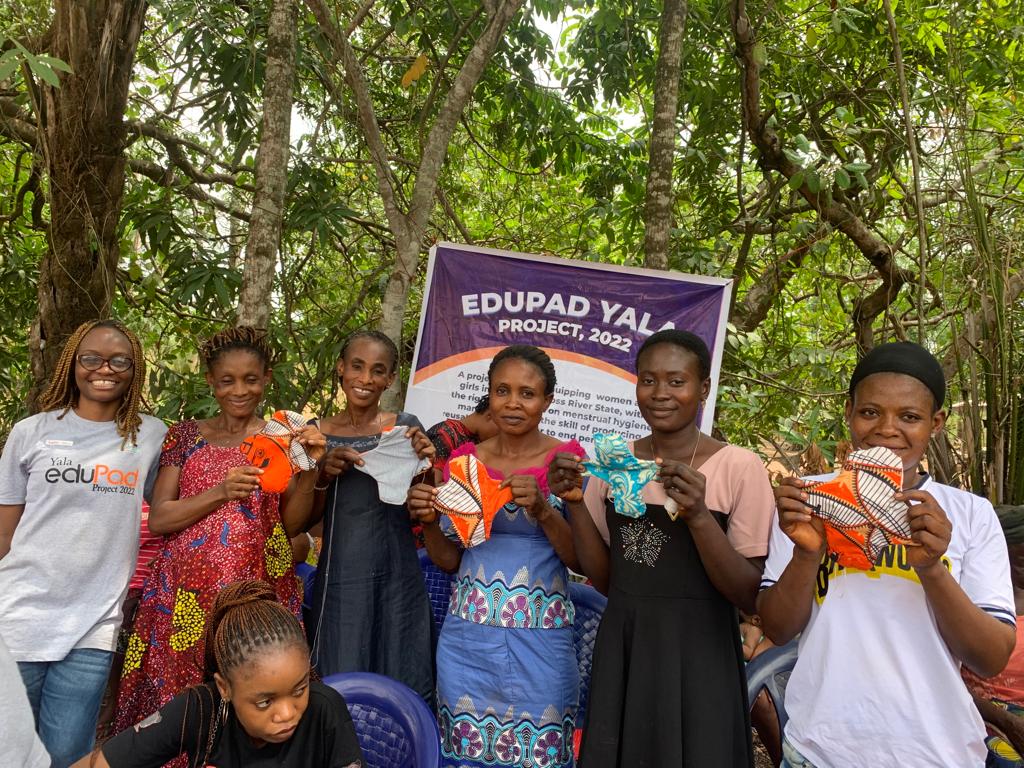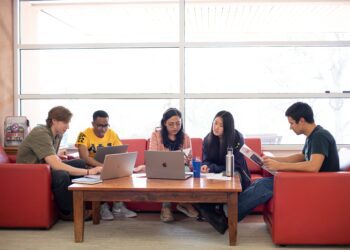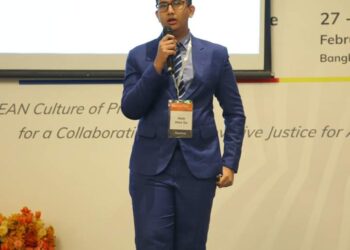Goodness Ogeyi Odey, a 24-year-old from Nigeria, recently graduated from the Public Health program at University of Calabar’s College of Medicine, received a Community Action Award grant to pursue the EduPad Yala Project, which proposes equipping over 1,000 girls and boys with the skills to make reusable sanitary towels from safe, hygienic, easy-to-source, and affordable materials.
“Every month, girls in Nigeria face challenges during their menstruation. This is a result of lack of affordable menstrual health products and comprehensive menstrual health education,” Goodness said in a recent article from The Paradise.
This initiative will also include financial literacy sessions, fostering both environmental sustainability and economic empowerment.
“Proceeds would go into setting up a village loaning and savings system for these young women and supporting weekly sexual and reproductive health rights sessions throughout 20 communities in Yala, where period poverty is a serious issue,” Goodness explained.
Goodness is partnering with the Today for Tomorrow Foundation, a local NGO which supports adolescents in sexual and reproductive health.
“While facilitating sessions on menstrual and reproductive health, I got a better understanding of the sad reality that many of the girls face,” Goodness explained. “From reproductive infections and unplanned pregnancy to increased school drop-out rates and gender-based violence resulting from girls being forced to exchange sex for pads, it’s an unending cycle of poverty and pain for girls.”
Goodness and her team recently implemented the first phase, equipping 350 women and girls with skills to produce their own pads and allowing them to share their stories. Many girls expressed stories that are similar across Nigeria – and that Goodness herself related with.
One girl shared that she bled through her white school uniform and felt shame all the way home to her bedroom, where she sat worrying until her sister came home. Even after learning from her sister briefly about menstruation, her mother told her that she may get pregnant if close to boys now. Other girls shared their use of tissue paper, which poses danger to the female reproductive system. Goodness’s team teaches them about safe materials to use and how to get medical support in their community.
Goodness acknowledges that they cannot debunk all myths or raise awareness about their program without the support of their partners and volunteers on the ground. They have learned so much just from phase one, such as including boys in breaking down barriers and stigmas around menstruation as well as the power of women having a safe space to share their stories.
Goodness wrote a paper recently published in the Journal of Public Health in Practice, “Period during a pandemic: The neglected reality of Nigerian girls and women”, which revealed that COVID-19 exacerbated period poverty in Nigeria, especially amongst the most vulnerable, rural populations. Goodness hopes her work can be a catalyst for multi-scaled policy change around menstrual equity.
“It shouldn’t be expensive for a woman to get her period monthly. Implementing the EduPad Yala Project will be key to achieving menstrual equity and ensuring that women maximize their potentials without being limited by period poverty.”
